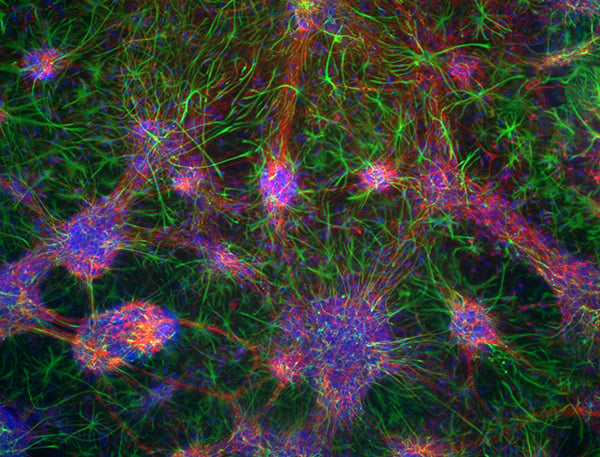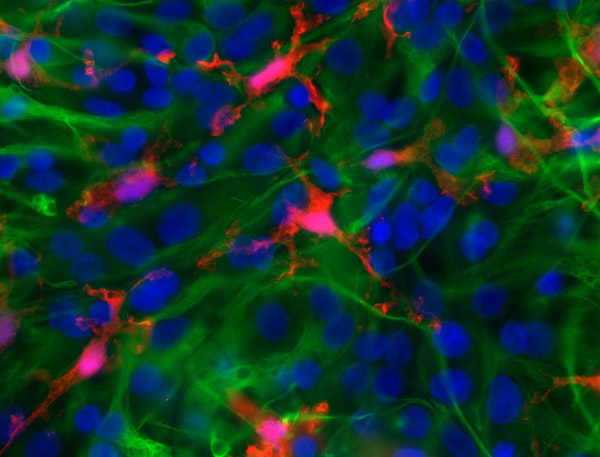
Popular topics

The PhD: More than a Thesis

Undertaking a PhD is no small task. It takes many years of research, it can be a rollercoaster of emotions, and sometimes can feel overwhelming, or even disappointing when experiments don’t turn out as planned. Even if you don’t have as many publications as you hoped for when you graduate, you still learn valuable skills along the way. In this guest blog, Emma Green tells us why the value of a PhD is more than just your research and what she learned from the experience.
What have I learned during my PhD? To put it simply, a huge amount. And way more than I thought I would. I entered my PhD quite naïve, although not unprepared. I knew it would be a lot of work, but it was a level of work, and of perseverance, that I hadn’t been exposed to before.
1) You Gain Transferable Skills
It’s a steep but transferable learning curve. You learn to always stick to the protocol (follow instructions), that multiple deadlines fall on the same day (task management), that things rarely go to plan (adaptability), and that you can do anything when armed with a computer (IT skills). And everything you learn from a PhD really reflects the variety of jobs you can apply for afterwards, whether you’re addicted to the lab, find your passion in communication, or you’ve gained the confidence to branch out to a different field.
2) You Learn to Ride the Rollercoaster
A PhD can feel overwhelming at times. There were points where it felt like nothing I tried would ever work. Sometimes it’s like everyone in academia has this magic touch that makes their experiments work, but it’s not true. It’s not until you’ve been through this that you realize just how much work goes into a scientific paper with just a couple of thousand words and a few images to explain your findings.
A PhD builds resilience, sometimes it feels that the odds are stacked against you, but you learn to deal with the disappointments; you thicken your skin, you adapt and enjoy celebrating even the slightest victories. You learn that criticism is a great tool, you can only grow from it, despite how upsetting it may feel at the time. And looking back, it’s not the hard times that stand out. I remember that feeling when an experiment actually worked. I remember looking down the microscope at some of the most beautiful scenes. And for me, the best moments, were those when I was sharing my work, and the wonders of neuroscience, with members of the public.
3) You Tackle the Imposter Syndrome and Discover Your Self-Worth
Something I wish I had learned earlier, and something I still need to work on, is to be confident. That’s not to say be arrogant, there’s a huge yet subtle difference. Academia is rife with imposter syndrome and I couldn’t see how any of these amazing scientists around me could possibly suffer from it - surely, it was only reserved for me? If you’re doing a PhD you don’t always feel that smart when you are surrounded by other academics, even if other people (like your Mom) think you are. After all, a PhD takes more than just brains. However, you know more about your work than anyone else and you are an expert on that niche topic. You have the right to be confident about your research and indeed you should be. It can be hard to feel confident and I found the best way to build it is to talk more. Sign up for every poster presentation, every three minute thesis, and every speaking opportunity you can. You’ll learn something each time and even though the fear never fades (or so I’ve been told), the way you handle it does and you will appear more confident in no time, even if you don’t actually feel it.
4) You Get Unique Insights into Science
Although I don’t feel that my research is ground-breaking, that doesn’t mean it’s not useful or awe inspiring. Even small discoveries can help to pave the way for larger, more ground-breaking ones. My research looked into how vitamin B3 affects brain cells, specifically those that could be implicated in Parkinson’s disease. I used primary midbrain cultures, which contain the cells relevant to Parkinson’s disease, and this required me to hone my dissection skills alongside cell culture. I got some promising results from looking into the neuron and microglia populations, and at the same time I found so much beauty in these brain cell cultures. The amazing formations that each cell type takes and how they come together to create these beautiful sceneries is truly amazing (Figure 1 and Figure 2).
Figure 1 shows neurons, the brain cells that everyone knows about (in red), reaching across the culture to each other. Neurons like to grow together in these spheres. They can be quite fussy at times, especially the dopamine neurons that I was trying to study, and they grow best with astrocytes (shown in green). Astrocytes support the neurons, but their important contribution to the brain is often overlooked in neuroscience. Astrocytes tend to be a lot hardier and easier to grow, but they are far from simple or easy to study.

Fig.1. Brain cell scenery. Cells derived from the developing rat brain showing all nuclei in blue, astrocytes in green, and neurons in red.
Figure 2 shows a close-up of microglia (shown in red), the bodyguards of the brain and spinal cord, keeping the brain safe, molding it, but perhaps getting a bit out of control in some degenerative conditions. They are fascinating to watch, adapting quickly to changes in their environment. It’s easy to get lost watching a time lapse of these cells patrolling the culture and engulfing anything they deem shouldn’t be there.

Fig.2. Small but mighty microglia. Cells derived from embryonic rat brain with nuclei in blue, microglia in red, and nestin-positive neural stem cells in green.
I feel that I learned a lot about these cells, about my cultures, and how it’s as if each cell type has its own personality. And it was exciting to finally get to see these cells properly down the microscope after weeks of looking after them. To try to analyze what they had been up to and how my experiments had affected them.
5) You Make Amazing Connections
Perhaps one of the most important things I learned throughout this indescribable process is that a PhD is much more than a thesis. There’s a huge story behind it of drinking beer, laughing, crying, shouting, and hugging. It’s the friends you make in your shared distraught. It’s the superstitions you develop from all the failed experiments. It’s the quiet conversations with other PhD students at conferences when you both confess your posters aren’t what you want them to be. It’s the outreach activities, connecting with people who didn’t have the scientific opportunities you have, or inspiring curiosity in the next generation. It’s realizing that the more you investigate a subject, the less you know about it. But despite all of the frustration that science brings, it also brings wonder. And you find that you get sucked in by that endless, frustrating yet fascinating chase where every answer only leads to more questions.
6) It’s an Achievement Worth Celebrating
Having reached the end of my PhD, the thing I wish I had learned first, is that no two PhDs are the same. It’s tempting to compare, and easy to feel good or bad about your position when comparing to someone else’s, but your PhD is so unique and dependent on your supervisor, your project, your university, and you that you realize you can’t truly compare. That’s not to say that your peers can’t offer absolutely amazing advice, never forget that you’re all in this together, and despite the uniqueness of your position, you’ll all be going through the same emotions, whether it’s frustration or elation, at some point. Completing your PhD is a huge accomplishment and you’ll join a group of graduates, from fresh doctors to seasoned professors, who can understand these whirlwind years and what they mean to you. With hindsight there is so much I would have done differently, but at the same time, I wouldn’t change a thing. Ultimately, this experience has made me into what I will (in secret) call a good researcher and prepared me for the next steps in my career.
Would You Like to Share Your PhD Experience?
If you have a story related to research life and would like to share it, you can apply to be a guest contributor for Lab Crunches. Email us to learn more about writing for Lab Crunches.
You may also be interested in...

View more Guest Blog or Careers blogs















